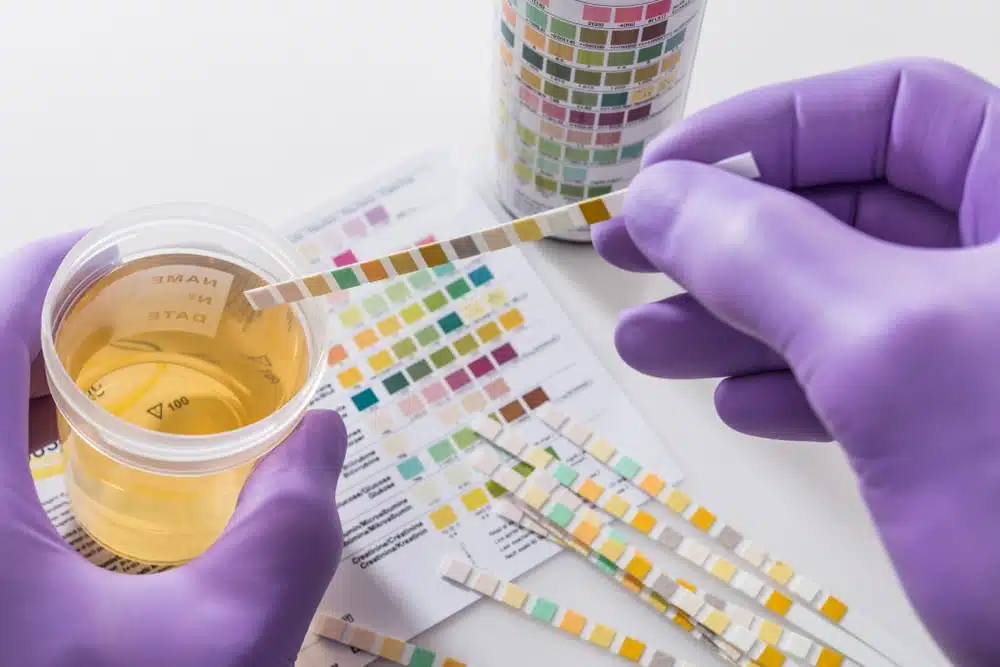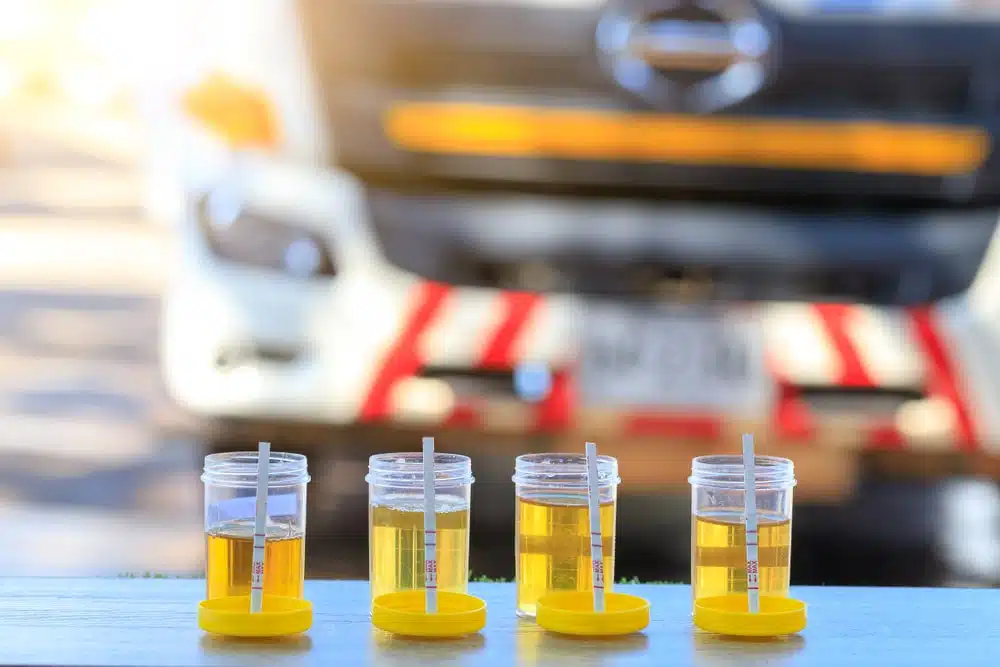Truck drivers are generally required to abide by drug testing rules. Truck operators, for obvious safety reasons, are held to a higher standard of care when it comes to drugs and alcohol both on and off the road. The Department of Transportation (DOT) has rules governing mandatory drug tests for safety purposes. DOT drug tests only use a urine sample for drugs (no hair or blood) and a breathalyzer test for alcohol. DOT drug tests do not have rapid/instant results and samples are required undergo thorough analysis for accurate results. DOT drug testing follows a five-panel test for: Marijuana or THC, Cocaine, Amphetamines, or methamphetamine, MDMA, Opiates or codeine, heroin, morphine, hydrocodone, oxycodone, hydromorphone, oxymorphone, and Phencyclidine or PCP. The DOT breathalyzer tests for alcohol concentration levels of .004 or above. Sometimes people have traces of alcohol or drugs that appear in test results even 30 days after their last use.
Drivers who have Commercial Driver’s Licenses (CDL’s) and operate vehicles carrying more than 16 people or transporting heavy materials or equipment must comply with drug testing protocols. Truck driver drug testing has been established, by the advocacy work of attorneys, including truck accident attorneys, safe-driving advocates, victims of truck accidents, concerned legislators and others, in order to discourage truck drivers from using and abusing drugs and alcohol that can affect their ability to drive safely.
There are several situations when a truck driver must submit to drug testing. For example, in pre-employment situations these truck operators often must undergo drug testing as part of a background check. And, if there is reasonable cause or suspicion that a truck operator may be using drugs or alcohol, a truck driver will have to undergo a drug test. Many trucking companies have policies that require their truck drivers to submit to drug and alcohol testing if the driver was involved in a motor vehicle accident even though the Federal Motor Carrier Safety Administration does not always require drug testing after an accident. However, when truck accident involves a death, the truck driver must be tested for drugs, even if they were not arrested for operating their truck while impaired or intoxicated. Another situation where truck drivers are tested is when an employer performs random drug testing. Random testing is done quarterly and are conducted in accordance with a random selection rule; all truck driver employees of a particular company must have an equal chance to be or not be tested.
If you are involved in a truck accident, it is important that you contact experienced truck accident attorneys immediately so they can determine if drugs or alcohol played a role in the accident. Even if the police do not test the truck driver at the scene, there may be follow-up testing performed by the truck driver’s employer. Any truck operator who fails a drug test may be terminated from their job, suspended, and may face other penalties such as suspension or loss of license and certification. Truck drivers who return to work after testing positive will have to complete return-to-duty drug tests and screenings and may be required to work with a Substance Abuse Professional (SAP) for guidance.
Competent truck accident attorneys are familiar with the rules and record keeping for drug testing of truck operators. If you are involved in a truck accident, contact Giordano Law Offices Personal Injury & Employment Lawyers immediately so they can investigate further and determine if drugs or alcohol played a role in the accident. Truck accident attorneys can also determine if a truck driver has a record or history of drug or alcohol abuse. Positive drugs test should stay on a truck driver’s CDL Clearinghouse for five years. The CDL Clearinghouse is an online database that provides government agencies and employers with real-time access to information about a truck driver’s CDL driver drug and alcohol program violations.
New York State also has clear drug and alcohol testing procedures, stemming from the Federal Motor Carrier Safety Administration provisions. Police officers responding to the scene of an 18-wheeler, semi or other truck accident will gather as much evidence as possible, including any sign that drugs or alcohol played a role in the vehicle crash. At Giordano Law Offices Personal Injury & Employment Lawyers, we have experience obtaining the relevant information from the police department in such cases where drugs or alcohol may have affected the truck driver’s safe operation of the truck.
The operator of an 18-wheeler, semi or other long haul or large truck who has violated drug and alcohol testing procedures and rules, will held accountable if an accident occurs that results in serious bodily injury. You should immediately contact a competent truck accident lawyer to they can immediately investigate and begin to obtain the needed evidence: legal matters are far too much to deal with if you or your loved one is the one trying to recover from an accident.
If you are involved in a truck accident, or any accident involving an 18-wheeler, semi or long haul truck, contact Giordano Law Offices Personal Injury & Employment Lawyers immediately to secure evidence, investigate the case and protect your rights.



